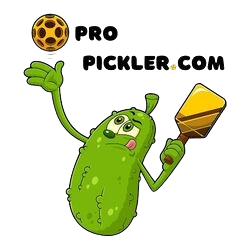Have you ever experienced the frustration of losing focus on the court after receiving a compliment? It can be disheartening to have your mind wander during a game, leading to missed shots and a decline in performance.
I recently encountered this situation in a Pickleball match when one of my opponents praised my play. However, instead of boosting my confidence, it actually had the opposite effect. I found myself overthinking their compliment, which hindered my focus and ultimately affected my gameplay. In this article, we will explore two effective techniques to combat this issue and regain your concentration on the court.
Technique 1: Thought Stopping
One powerful method to regain focus when your mind starts to wander is called “Thought Stopping.” This technique involves giving yourself a verbal reminder to halt the distracting thoughts and redirect your attention back to the game. It can be as simple as saying the word “Stop” to yourself. The key is to use this reminder without berating yourself or becoming overly critical. The purpose is to gently bring your focus back to the present moment rather than dwelling on the thoughts in your head.
I personally utilized this technique during my early days as an athlete when negative thoughts about my performance would creep in. By employing the “Stop” reminder, I was able to effectively silence those thoughts and refocus on the task at hand. Similarly, when you find yourself ruminating on what someone else said, this technique can help you regain control of your concentration and enhance your gameplay.
Technique 2: Cues
In addition to Thought Stopping, incorporating cues into your routine can significantly aid in maintaining focus during a game. A cue is a physical action or gesture that serves as a reminder to keep your mind engaged in the present moment. The specific cue you choose is not as important as its effectiveness in quickly redirecting your attention. It can be as simple as tapping your thigh with two fingers or snapping a rubber band around your wrist.
The purpose of the cue is to create a physical association with the act of refocusing. By performing the cue between points, right before a serve, or even during a point, you train your mind to switch gears and let go of distracting thoughts. For example, I often fixate my gaze on the ball when I hit a serve or when someone else on the court does. This action serves as a reminder to keep my mind quiet and fully immerse myself in the game, disregarding any external comments made by my opponents or partners.
Conclusion
Maintaining focus on the court is crucial for optimal performance. When your mind starts to wander due to external distractions such as compliments or comments from other players, it’s essential to have strategies in place to regain your concentration. Thought Stopping and incorporating cues into your routine are two effective techniques to combat this issue.
Remember, when your mind starts to drift, give yourself a gentle reminder to “Stop” and redirect your attention back to the game. Additionally, find a cue that works for you, whether it’s a physical action or gesture, to snap your focus back into the present moment. By implementing these techniques, you can enhance your gameplay and ensure that external distractions have minimal impact on your performance.
Frequently Asked Questions
Q: How can I prevent my mind from wandering during a game?
To prevent your mind from wandering during a game, you can try using the technique of Thought Stopping. Give yourself a verbal reminder, such as saying “Stop,” to redirect your attention back to the present moment and the game at hand.
Q: What are cues, and how can they help me stay focused?
Cues are physical actions or gestures that serve as reminders to keep your mind engaged in the game. They can be as simple as tapping your thigh with two fingers or snapping a rubber band around your wrist. Cues help create a physical association with refocusing, allowing you to quickly let go of distracting thoughts.
Q: Can these techniques be used in other areas of life, not just sports?
Absolutely! The techniques of Thought Stopping and cues can be applied to various aspects of life where focus and concentration are essential. Whether it’s in academics, work, or any other activity that requires your full attention, these techniques can help you stay present and perform at your best.
Q: How long does it take to master these techniques?
The time it takes to master these techniques may vary from person to person. It’s important to practice consistently and be patient with yourself. With regular implementation, you will gradually improve your ability to refocus and maintain concentration during games.
Q: Are there any other strategies to enhance focus on the court?
In addition to Thought Stopping and cues, there are other strategies you can explore to enhance focus on the court. These include mindfulness exercises, visualization techniques, and developing a game preparation routine. Each individual may find different strategies that work best for them, so it’s worth experimenting and finding what helps you personally maintain focus and perform at your peak level.



